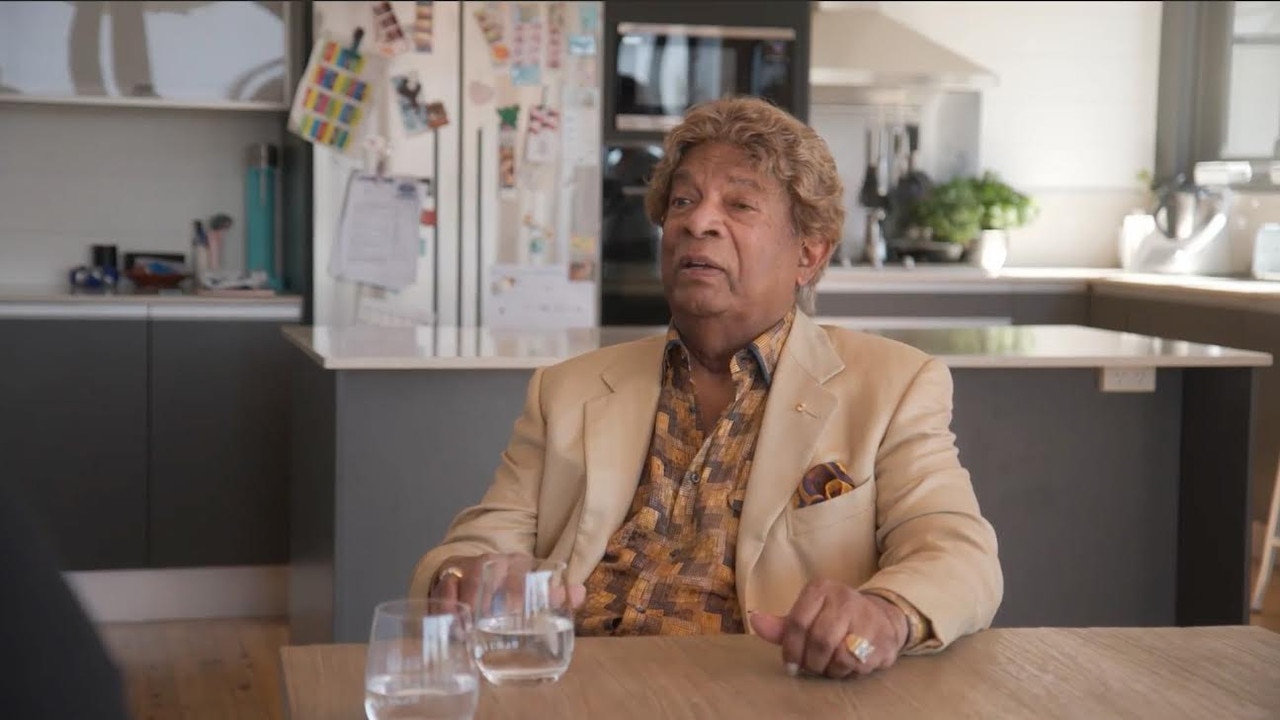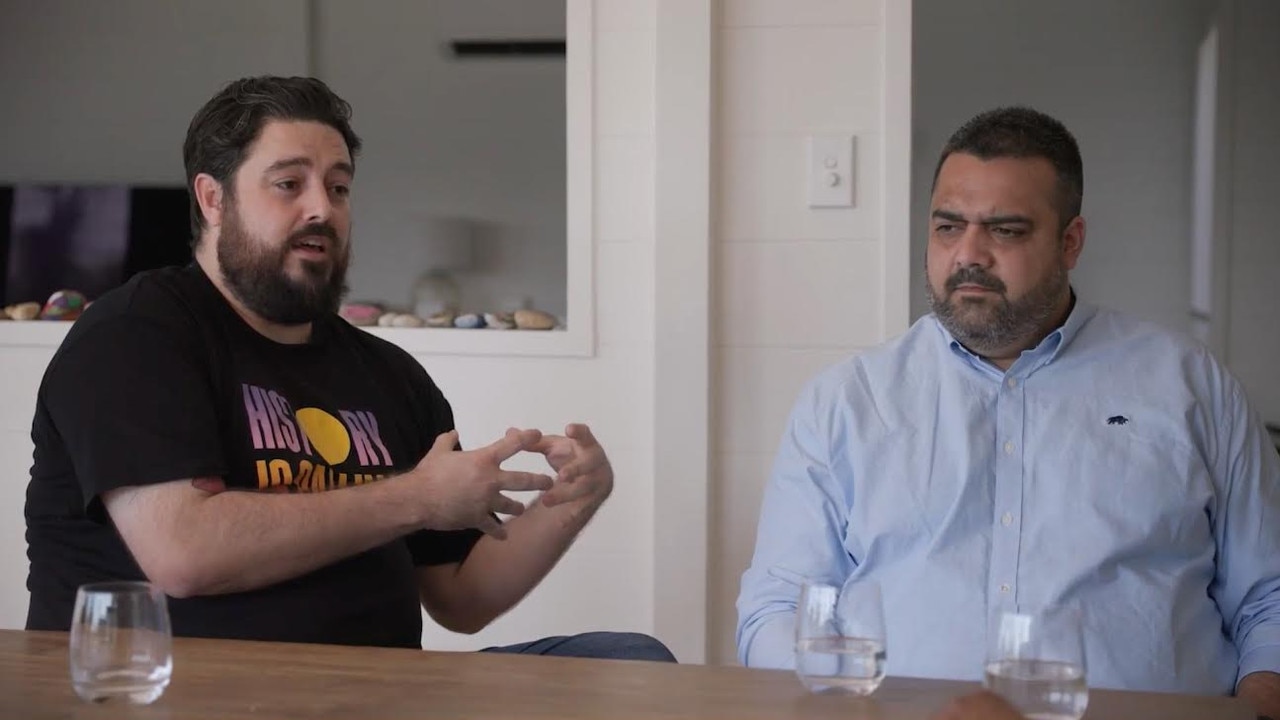by Ganesh Sahathevan
Kamahl listens to Synot and Simpson. Picture: Supplied
Constitutional lawyer Eddie Synot (left) and comedian Dane Simpson explain the Voice to Kamahl. Picture: Supplied
Famed singer Kamahl has flipped from No to Yes on the Indigenous Voice to Parliament within the space of a month.
Writing on the social media platform X overnight, the Malaysian-born star, 88, said he had spent “sleepless nights weighing the pros and cons”.
“I will vote YES,” he wrote. “Coincidentally I was in ‘Journey out of Darkness’ in 1967 as the Aboriginal prisoner, just before THE Referendum”.
Kamahl changed his vote after meeting Indigenous comedian Dane Simpson and constitutional lawyer Eddie Synot and listening to their arguments.
“I’m embarrassed, until Monday or Tuesday I didn’t realise they (Indigenous people) were considered not human,” he said.
“I can’t …” he said, breaking down in tears. “For me, it is a heart and mind thing,” he said.
Eddie Synot has written in The Converstaion
The path to change is through understanding and acknowledgement of this fact.
Further, First Nations are not recognised as nation states under international law.
So, our rights, even under the United Nations Declaration of the Rights of Indigenous Peoples, a non-binding agreement, are subservient to the nation states within which we have our legal existence.
Some see it as intractably difficult. I do not. Although we must work within the institutions of the Australian state, this does not mean those institutions must remain irredeemably colonial, nor does it mean we cannot change our nation.
Substantive structural reform to the political system has to come first if the Makarrata Commission for treaty and truth-telling is to have meaningful effect.
We have had treaty promises and truth-telling processes before, but in the absence of this structure they have had little impact on the grander scheme of things.
If we are to change the constitutional structure of this nation then we need to begin here, at its foundation, with the Voice to Parliament: a permanent institutional mechanism that respects First Nations by recognising their place and sovereignty in the fabric of government.
https://theconversation.com/what-we-mean-when-we-say-sovereignty-was-never-ceded-195205
END


No comments:
Post a Comment